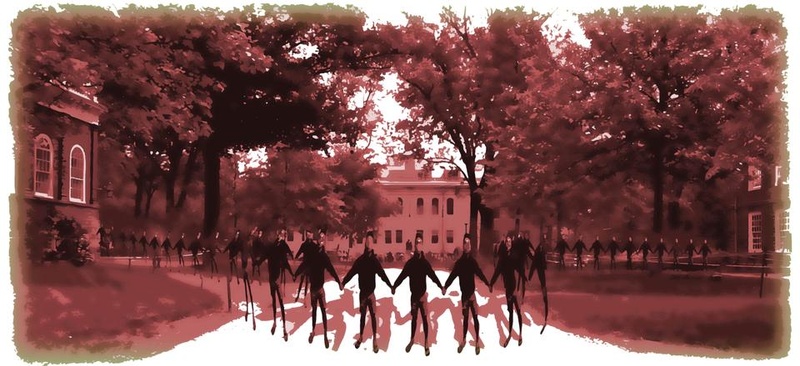Director of the new Harvard Union of Clerical and Technical Workers Kris Rondeau was attending a rally for Massachusetts governor Michael Dukakis’s presidential campaign in a packed Sanders Theater when she received the good news.
A staff member carried the urgent message to Rondeau: The University’s efforts to block the creation of the union had been overturned by a regional judge. HUCTW was now official.
Rondeau whispered the news to an aide, who then passed along a note to the speaker on the stage: renowned civil rights activist Jesse Jackson. The reverend stopped mid-sentence.
“A ray of hope in Cambridge!” he declared, looking out over the hundreds of screaming people sitting in the rows in front of him.
“We won again,” Rondeau said to the audience. “Their unmistakable goal was to beat the union, and they just failed. Now, finally, I hope they can recognize reality.”
Rondeau’s announcement that day was the culmination of a 17-year movement that had begun with a small group of female organizers at Harvard’s Longwood campus and gradually won the support of the majority of Harvard’s approximately 4000 staff employees.
“When we won, no one was more surprised than we were,” Rondeau said. “It was kind of an impossible task, and I don’t think anybody really thought it could be done.”
Since the very beginning, union organizers had sought to further their cause with a good-natured and community-oriented manner.
“We had this feeling that...maybe a group with a lot of modern ideas about human relations and community building could do the union thing in a partially new way,” said Bill Jaeger, an organizer at the time and the union’s current director.
Despite the novel organizing strategies that union leaders attempted, they still came up against a fierce anti-union campaign led by a University committed to preventing organized labor. While early pushback by Harvard officials threatened the drive to organize, union leaders successfully built up a broad base of support—one that ultimately brought administrators to the bargaining table.
PRO-UNION, NOT ANTI-HARVARD
When Rondeau and several former Harvard staff members formed the independent HUCTW in August of 1985, they faced a singular challenge.
By renouncing any affiliation with the United Auto Workers, or any other nationwide organization, the new union was on its own. HUCTW had to rely completely on Harvard staff and its own sources of funding to sustain the movement.
“Everything had to be made up as we went along, so that was extremely challenging,” Rondeau said. “There was no blueprint for how to do something like this, and we just had to figure it out kind of by putting one foot in front of the other, and that was hugely exciting.”
Forming an official union required that HUCTW organizers gain a majority of the staff ’s support in an election held through the National Labor Relations Board. As a result, one of the first tasks that Rondeau and other union leaders faced was winning their colleagues’ support.
Read more in News
At 362nd Commencement, 7,321 Are Awarded Degrees













